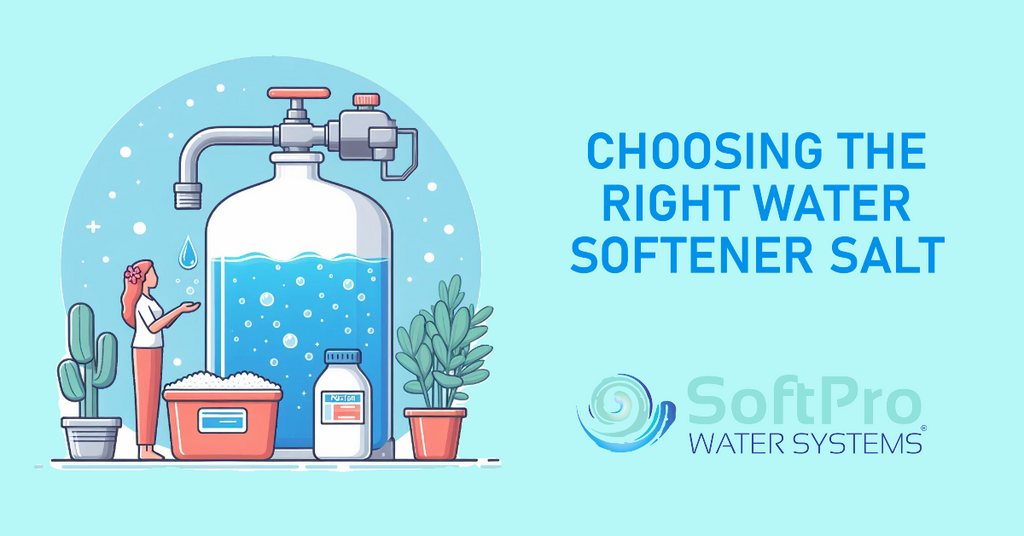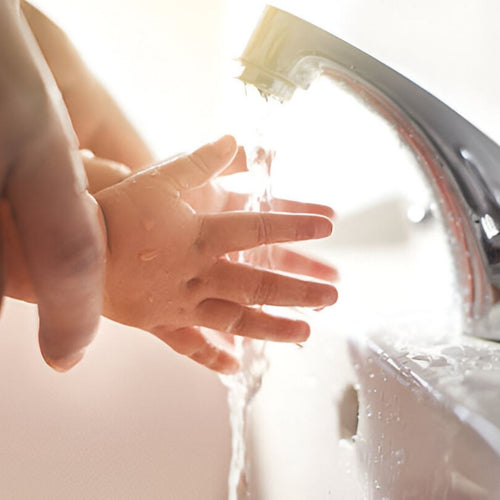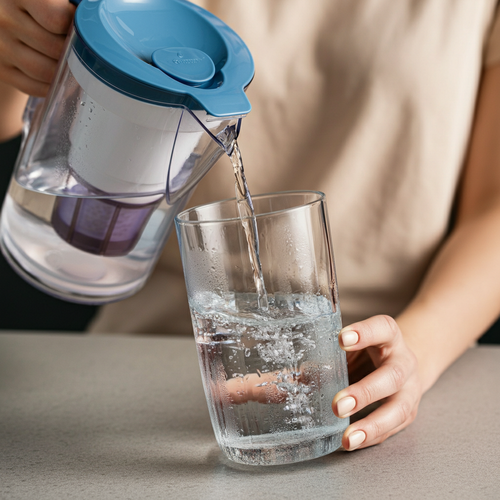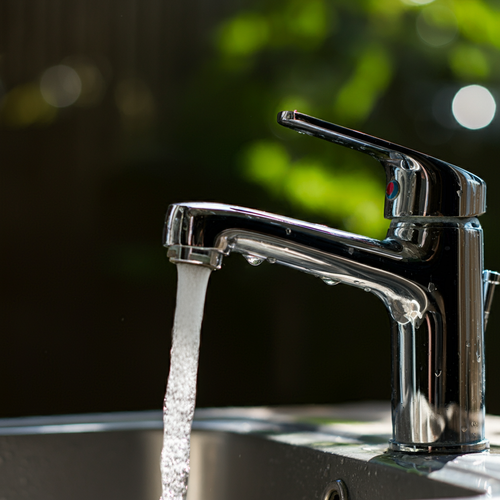If you own a water softener, the type of salt you use directly impacts its performance and longevity. The best choice for most homeowners is evaporated salt, which boasts a purity level of 99.9% sodium chloride, minimizing the buildup of residue and potential malfunctions within your system.
Let's dive into why choosing the right salt matters. Hard water, characterized by a high concentration of minerals like calcium and magnesium, causes a range of frustrating issues – from stubborn soap scum and spotty dishes to dry skin and reduced appliance efficiency. Water softeners tackle this problem through a process called ion exchange, where hard water passes through a resin bed saturated with sodium ions. The calcium and magnesium ions in the hard water are swapped for sodium ions, effectively softening your water supply. Salt, specifically sodium chloride, is essential to regenerate the resin bed, ensuring your water softener continues to do its job.
While table salt might look similar, it's absolutely not suitable for water softeners. Table salt often contains additives and impurities that can clog your system. Specific water softener salt is designed for optimal dissolving and minimal residue, safeguarding the efficiency and lifespan of your water softener.
Types of Water Softener Salt
Let's break down the most common varieties of salt you'll find for your water softener:
Evaporated Salt
This is considered the gold standard for water softeners thanks to its exceptional purity (99.9% sodium chloride). Evaporated salt is produced by evaporating seawater or brine from underground salt deposits, resulting in a highly soluble product that leaves minimal residue in your tank. It's available in pellet, crystal, or cube forms.
Solar Salt
Harvested by evaporating seawater in large open ponds, solar salt is a more affordable option than evaporated salt. While less pure, containing some trace minerals, it remains a viable choice for many water softeners. Solar salt typically comes in crystal or pellet form.
Rock Salt
The least refined option, rock salt is mined from underground deposits and contains the highest level of impurities. While it's the cheapest type of water softener salt, its insoluble matter can clog your system, potentially leading to damage and reduced efficiency.
Potassium Chloride
This is a sodium-free alternative for those on sodium-restricted diets or in areas with sodium regulations. Potassium chloride functions similarly to sodium chloride in the ion exchange process but is often more expensive and may require you to adjust your water softener's settings.
Understanding the Differences
Evaporated salt stands out for its ability to minimize buildup in your brine tank, ensuring long-term system health. Solar salt can provide adequate softening but might necessitate more frequent brine tank cleaning Rock salt is generally discouraged due to its potential to harm your water softener. Potassium chloride offers a viable option when sodium intake is a concern.
Choosing the Right Salt for Your Water Softener
Selecting the optimal water softener salt isn't a one-size-fits-all scenario. Here are the key factors to consider:
Purity vs. Cost
Evaporated salt delivers the highest purity, potentially extending the life of your water softener but comes at a higher price point. Solar salt offers a budget-friendly compromise, though you'll likely need to clean your brine tank more frequently.
Water Hardness Levels
The severity of your hard water problem plays a role. Homes with extremely hard water might benefit from the fast-dissolving properties of solar salt crystals. You can easily test your water hardness with a home testing kit or consult a water treatment professional.
System Compatibility
Always refer to your water softener's owner manual for specific recommendations on salt types. While most modern softeners can handle various sodium chloride options, some may have dedicated settings for potassium chloride usage.
Brand Considerations
Reputable water softener manufacturers and salt suppliers often adhere to specific purity standards. When available, explore brand-specific salt options like those offered by SoftPro, designed to work in synergy with their softeners.
Balancing Your Priorities
Ultimately, the "best" salt depends on your individual needs. If minimizing system maintenance is your top priority, evaporated salt is a worthwhile investment. If budget is your primary concern, solar salt can be a functional choice with some extra upkeep. Those with sodium sensitivity will find potassium chloride a suitable alternative.
Beyond the Basics: Salt Forms and Maintenance
Pellets, Crystals, or Cubes
The shape of your salt (within the evaporated or solar salt categories) is largely a matter of personal preference or what's readily available. Pellets are compressed salt that may slightly reduce the risk of bridging (clumping) in humid climates.
Bridging and Mushing
When salt forms a solid mass in your brine tank, it's called bridging, while a sludgy salt buildup at the bottom is referred to as mushing. Both issues hinder salt flow and regeneration. Regular tank checks and using higher-purity salt will reduce the likelihood of these problems.
Tank Cleaning
The recommended cleaning frequency depends on the type of salt you use. Evaporated salt typically minimizes the need for tank cleanings, while solar or rock salt might necessitate more frequent cleaning according to your system's manual.
Regardless of the salt type you choose, it's essential to keep your brine tank properly filled. Most systems indicate an optimal salt level, and allowing it to drop too low can compromise the regeneration process.
Where to Buy Water Softener Salt
You have several options when it comes to purchasing water softener salt:
-
Big Box Stores: Home improvement centers and large retailers often carry water softener salt in various types and brands. This is a convenient choice if you need salt quickly.
-
Home Water Specialists: Water softener dealers typically sell salt specifically formulated for optimal performance with their systems. You may get access to higher purity options and expert advice.
-
Online Retailers: Online platforms offer a wide selection of water softener salt and often have competitive prices. Be sure to factor in shipping costs when comparing prices.
-
SoftPro (If applicable): Explore www.softprowatersystems.com. We offer premium water softener salt carefully formulated to complement our systems and deliver maximum softening power with minimal maintenance required.
Prioritize Quality Over Price
While it's tempting to focus solely on price, remember that the purity of your salt directly impacts the efficiency and lifespan of your water softener. Investing in higher-quality salt often saves you money in the long run by reducing the need for frequent cleanings or repairs.
Bulk Considerations
If you have adequate storage space, buying salt in bulk quantities can offer cost savings. Be sure to choose a dry, secure location to keep your salt protected from moisture.
Recommendations
-
Overall Top Pick: For most homeowners, evaporated salt is the ideal choice. Its unparalleled purity safeguards your water softener system, ensuring top-notch performance and longevity.
-
Budget-Conscious Choice: If cost is a major factor, solar salt can be a viable option. Just be prepared to perform more frequent brine tank maintenance to prevent buildup.
-
Potassium Chloride Considerations: If you're on a sodium-restricted diet or live in an area with sodium regulations, potassium chloride offers a sodium-free alternative for water softening. Remember, you might need to adjust your water softener's settings accordingly.
Additional Tips
-
Consult the Experts: If you're unsure which salt is best for your specific water hardness levels and softener brand, don't hesitate to reach out to a water treatment specialist or the experts here at SoftPro. We'd be happy to guide you!
-
Look for Reputable Brands: Opt for water softener salt from established brands known for their quality standards. This increases the likelihood of getting a product that dissolves properly and leaves minimal residue.
-
Read the Label: Pay attention to the purity percentage listed on the salt packaging. Aim for the highest purity level within your chosen salt category.
FAQs
Can I use table salt in my water softener?
Absolutely not! Table salt often contains anti-caking agents and other impurities that will clog your system and potentially cause damage. Always use salt specifically designed for water softeners.
My water softener manual mentions potassium chloride. Is that different from regular salt?
Yes. Potassium chloride is a sodium-free alternative for those with health concerns or sodium restrictions. It functions similarly in the ion exchange process but may require adjustments to your softener settings.
Is it worth paying more for evaporated salt?
For most homeowners, evaporated salt is the best investment due to its high purity (99.9% sodium chloride). It minimizes tank buildup and maintenance, extending the life of your water softener.
Choosing the Right Salt for Optimal Softening
- Prioritize Purity: The type of salt you use significantly influences your water softener's efficiency and lifespan. Evaporated salt stands out for its unparalleled purity, reducing residue and potential malfunctions.
- Balance Cost and Maintenance: While evaporated salt offers the most benefits, solar salt is a budget-friendly option if you're willing to clean your brine tank more frequently.
- Sodium Considerations: Potassium chloride provides a viable alternative for those needing to limit sodium intake. Always consult your water softener manual for compatible salt types and any required setting adjustments.
- The Benefits of Making the Right Choice: Investing in the appropriate salt for your water softener yields numerous benefits for your home, including softer skin and hair, cleaner dishes, protected appliances, and potential cost savings in the long run.
Ready to experience the transformation of softened water?
Contact SoftPro today for expert guidance on selecting the perfect salt for your water softener and enjoy the numerous benefits it brings to your home!


















![Aldex Premium 10% Cross Link Resin for Water Softener [High Capacity]-SoftPro® Water Systems](http://www.softprowatersystems.com/cdn/shop/files/Aldex_10_Cross_Link_Resin_Premium_High_Capacity_for_Water_Softener_600x.jpg?v=1735853599)





















